Stories of violence victims
10 May 2021 | Anna Stork, Deutsche Welle
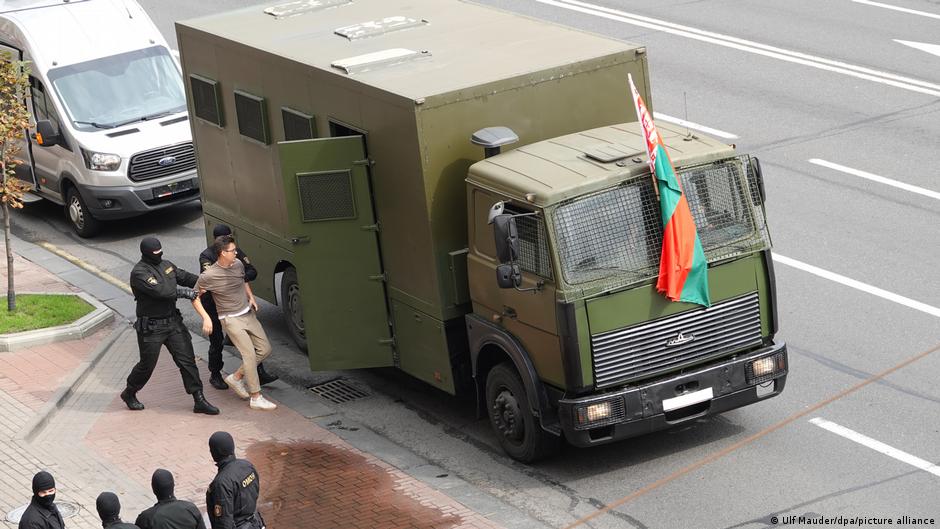
An application to the Federal Prosecutor’s Office considering the crimes against humanity committed by Lukashenko was submitted in Germany on behalf of 10 people who had been tortured in Belarus. DW interviewed two of them.
“I can hardly sleep. I am prescribed antidepressants and sleeping pills. I still can’t feel my fingertips from being tortured… Talking about how you were beaten, humiliated, and threatened to put a truncheon in your anus is not something one would like to share. It is unpleasant to remind myself about it,” says Valery Samalazau with a tremor in his voice.
How “Disney” T-shirt Triggered Torture
The Belarusian IT specialist, who has been working in the UK since July 2020, decided to spend his vacation in Belarus, settle matters with documents, and, at the same time, cast his vote in the presidential elections. Living in the suburbs where the Internet also did not work that day, Valery Samalazau learned about what was happening in Minsk on the evening of 9 August from his acquaintances. At first he could not believe it. But the next day, on his way to meet a colleague near the train station in the city centre, he himself was detained.
“I was walking along the sidewalk. They surrounded me and started asking questions. I was answering politely and showed them my ID. But my shirt (with a skull – Ed.) became a trigger. It was just a Disney symbol from the movie ‘The Punisher’. But it just bothered them so much. They said that it was also the symbol of the ‘Azov’ battalion. And they were constantly reminding me about this T-shirt before hitting me,” recalls Valery in an interview with DW.
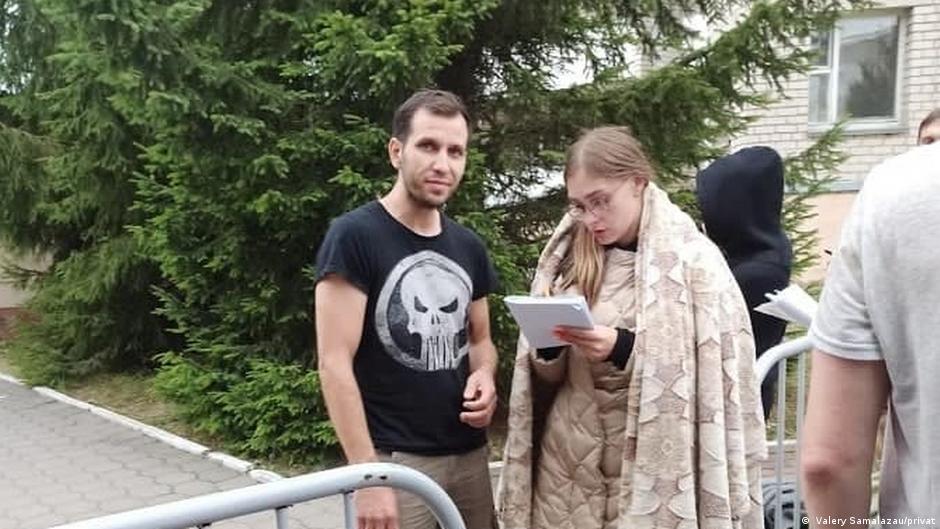
Source: Deutsche Welle
The attention of the security forces was also attracted by the British bank cards found on him, a SIM card in English, and the calls to the UK on his phone. “They thought they had captured the organizer of the protest,” said Valery. Samalazau received the first blow in the chest in the courtyard not far from the station. Then, passing him from one person to another, the security forces officers asked to give special attention to the “foreign spy”.
“The most brutal treatment I experienced in the Zavadski district police department and in a prisoner transport vehicle on the way from the police department to the pre-trial detention facility in Zhodzina. A prisoner transport vehicle is a torture chamber on wheels. In the prisoner transporter many people were screaming, crying, praying, and some were throwing up. I fainted twice myself from the pain,” says Valery. His hands, folded behind his back, were squeezed by a wide band. After seeing that he was silently enduring the pain, Valery’s hands were twisted even more. All of this was accompanied by blows.
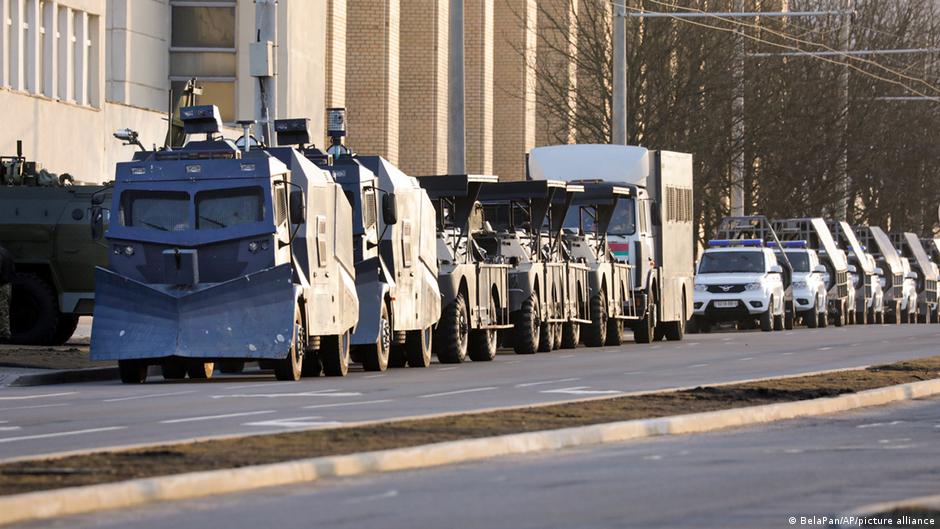
Source: Deutsche Welle
“They bent over me and whispered: ‘I see you are not afraid of pain. Let’s make it painful.’ The blood circulation stopped and after a while I did not feel my hands up to my elbows. It was getting unbearably painful. Then I braced myself to ask them to loosen the ties. I said that I had three children and wouldn’t be able to provide for them without my hands. But they charged toward me and bent my arms behind my back even more towards my head. That was the first time I fainted from the pain,” Valery continues. After his second request it repeated again.
When he was brought to Zhodzina pre-trial detention center, he was the only one ordered to stay inside the prisoner transporter. “They told me to kneel down. Then I had to stand up. I couldn’t stand so I fell. They lifted me up, put me against the wall and began to hit me on my head, chest, stomach, and legs. After that I was pushed out of the prisoner transport vehicle. Then I had to be on my knees until my name was called. Again, people in masks gave instructions to ‘give me special attention’.”
“We have been accused of being ‘puppeteers’”
Katsper Sinitski was detained on 10 August in the center of Minsk near Nemiga Street. “I was just walking down the street with my photojournalist friend. We were picked up by a bus and brought to a prisoner transport vehicle. Then we were taken to the Frunzenski District Police Department in Minsk. There we were beaten and heard a lot of insults related to our nationality. We were accused of being ‘puppeteers’ who had come to lead the protest and organize a color revolution,” says a freelance journalist from Warsaw. He came to Minsk to see everything with his own eyes and to cover what was happening for the Polish public. But instead he spent a little over 72 hours in the Frunzenski District Department of Internal Affairs and the pre-trial detention center in Zhodzina.
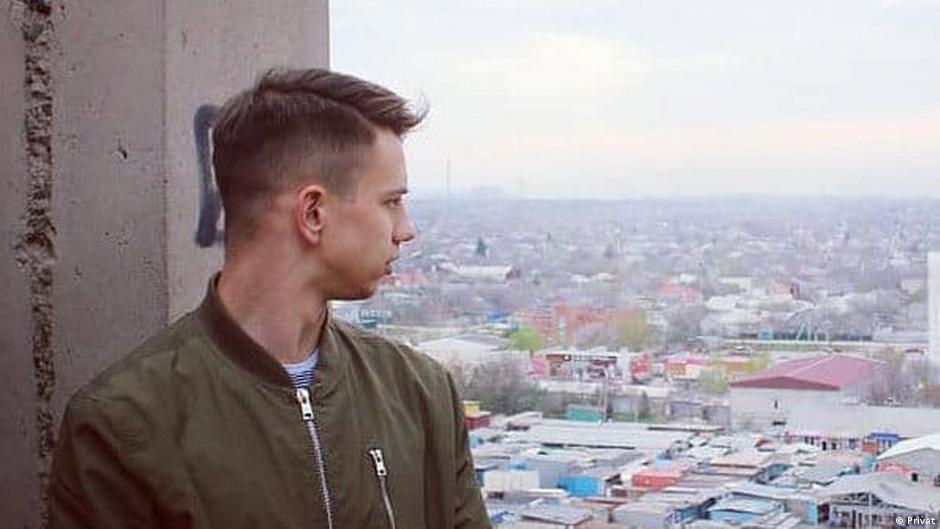
Source: Deutsche Welle
The beatings had begun even before he was taken to the police station. “My friend had already been beaten inside the bus so he lost his consciousness. I was being beaten in the prisoner tarsport vehicle. But the worst happened in the police department. There we were laid face down on the floor with our hands tightly fastened behind our backs and held in uncomfortable positions. We could not move. We were repeatedly threatened and told that if we moved, all our teeth would be knocked out. We were also forced to kneel with our faces on the floor. My legs were numb,” recalls Katsper.
According to him, anyone who could not handle being in this position was beaten with a truncheon. “We were repeatedly taken into the corridor and beaten there. We heard other people screaming. We could see blood. We were also subjected to mental pressure when the employees were walking around swinging a baseball bat and we didn’t know what to expect. We were denied water, food, sleep, or opportunities to use the toilet. There was total mayhem.”
The documentating of torture and a lawsuit against Lukashenko
Valery Samalazau and Katsper Sinitski are among those ten people on whose behalf German lawyers turned to the Federal Prosecutor’s Office of Germany, alleging that Alexander Lukashenko committed crimes against humanity. In connection with the protests after the presidential elections in August 2020, civilians in Belarus have been subjected to mass violence by the security forces.
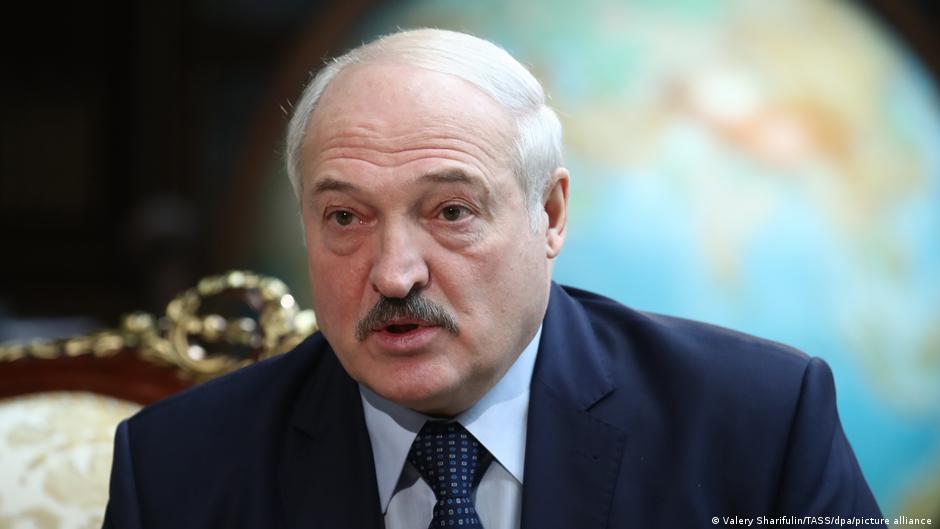
Source: Deutsche Welle
According to the lawers, those who applied to the German prosecutor’s office had been subjected to bodily and other kind of torture during their arrest . In Belarus itself, no criminal proceedings have yet been initiated against any members of the security services for torture. And since neither the security services nor Lukashenko have faced legal consequences, both the lawyers and the victims said that they were hoping for an independent investigation in Germany.
In Germany the Belarusian diaspora is responsible for documenting such cases. They have already collected information about more than a hundred such acts. “The geography is wide. There are cases involving both those victims who are in Germany and those who are now in Belarus,” Anton Malkin, a representative of the diaspora, explained to DW. “We are in contact with a large number of initiatives. They help to establish contact with people.”
“These crimes have no statute of limitations”
Today the Belarusians who have been tortured have the opportunity to contact one of the Belarusian human rights organizations like, for example, Viasna Human Rights Centre. This kind of assistance is also provided by the public organization “Nash Dom”, the project “August 2020”, and the BYPOL initiative. Valery Samalazau was released from the pre-trial detention center in Zhodzina 84 hours after his arrest. He spent the next two weeks in the hospital with head and hand injuries. Apart from a certificate from the pre-trial detention center and the hospital, no documents related to his detention were found.
“We didn’t find the protocol. My case can neither be found in the police department nor in Zhodzina. There was no court hearing,” says Valery. He filed a complaint against the Ministry of Internal Affairs for the beatings, but the initiation of a criminal case was refused “due to the absence of corpus delicti”.
Back in London, Samalazau turned to lawyers to initiate a case under the universal jurisdiction in the UK. But according to the laws of this country, this is possible only if the accused is on the territory of Belarus. Therefore, Valery decided to join the lawsuit filed with the German prosecutor’s office. “I hope that legally these facts will be documented and recognized by the international community. And given that these crimes are without a statute of limitations, justice will be restored,” Valery said.
He is not only seeking justice for himself. “In Belarus, people are afraid to speak out because the authorities will immediately come to their homes, take their children away, fire them from their jobs, and put them in prison. Considering that I am relatively safe, I would like the crimes against all my fellow citizens to be recorded.”
The goal is to declare Lukashenko a terrorist
According to Anton Malkin, the claim to the German prosecutor’s office is not an end in itself for its initiators, but only the first stage on the way of recognizing the Lukashenko regime as a terrorist organization. “Declaring Lukashenko a terrorist can be used as an ultimate tool to not just put pressure on the regime, but to demolish it,” Malkin believes.
In his opinion, Lukashenko will not be able to survive the charges of crimes against humanity and terrorism. “If now he still has certain opportunities for conducting some lobbying and business and certain political and economic ties then after the news of the lawsuit is published this support is going to be weakened. Everyone understands that he is a temporary figure. And those who do business with him now will be held accountable for many years to come.”
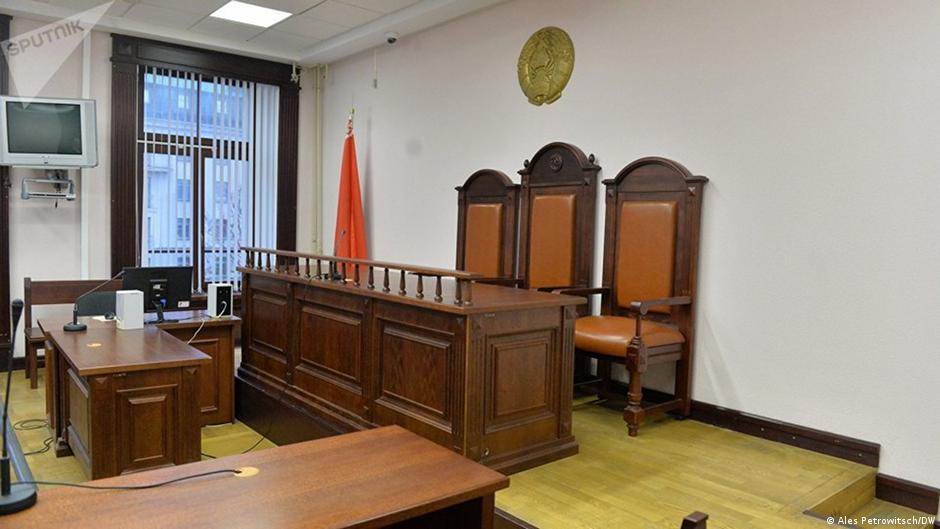
Source: Deutsche Welle
Katsper Sinitski, a torture victim, also considers the attempt to have the Lukashenko regime recognised as terrorist to be the right thing to do. “Therefore, I also participate in this and will testify and seek justice for Belarusians and for myself,” the young journalist emphasizes. He hopes that this lawsuit will help draw additional international attention to Belarus and have an affect on the current situation concerning the repressions in the country. It is important for Sinitski that Belarusians understand that if in cases like these they cannot go to court in their homeland, then they can try to do it in another country.